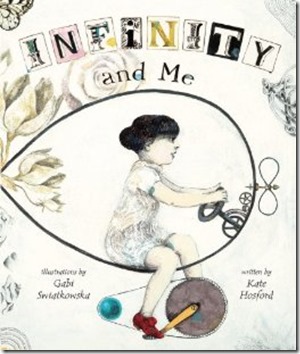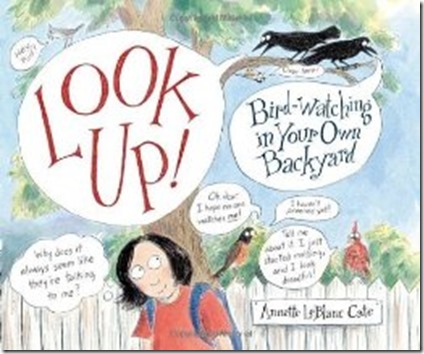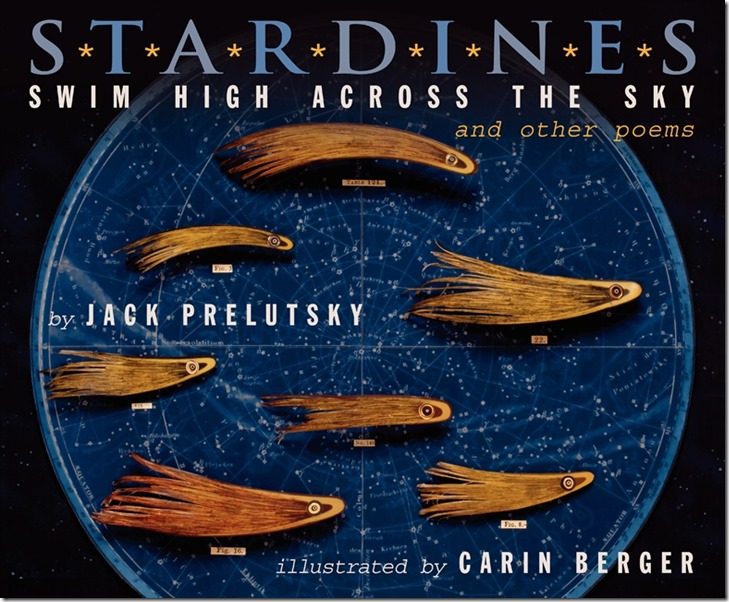Food For Thought
(Sorry about all the links. It was a thought-full month!!)
:: "Education is simply the soul of a society as it passes from one generation to another." ~G.K. Chesterton
:: The 100 Words Every High School Freshman Should Know Quiz @ Write At Home: (Everyone needs to take this quiz. Words matter!)
:: Odysseus of the Many Designs by Andrew Kern @ CiRCE: (Words matter!)
"We might not need to go back to a world where weaving is done by hand, but we do need to think about the world as a tapestry. Otherwise we don't know it for what it is."
:: I Remember Words by Cindy Rollins @ CiRCE: (Words matter!)
In my new favorite book on education, Beauty in the Word, Stratford Caldecott makes the case for using the word "remembering" to describe the grammar stage of the trivium. This is a staggering improvement over thinking of the grammar stage as the poll parrot stage. The grammar stage is the time we have to download our collective memory to our children so that they are tethered to the past and not adrift in the universe. The value is not in the skills they pick up or the facts they accumulate; the value is not in memorizing but in remembering. Sometimes we use memorizing to help us remember, but memorizing is only a tool while remembering is vital (from the Latin Vitalis, meaning belonging to life).
:: The Catholic Origins of Do-Re-Mi (And the origins of the word “gamut” because words are fascinating!)
:: Class of 2013: Learn to Write Code, Sure. But, Really, Learn to Write @ Linked In (fantastic post!)
"Over the last two decades, as the Internet has edged out the phone as the world’s leading business communications platform, writing has surpassed talking as the most important skill in the modern workplace. Whatever you do in the new econo...my, wherever you go, you’re going to be called upon to write. And the better you write—the more succinctly and confidently you wield language on the page—the more you’ll stand out. If you want to succeed, then, write. Learn to write, and practice every single day."
:: Classical Schools Put Plato over iPad @ Schools of Thought (CNN):
Today, St. Jerome is a thriving classical academy with quotes about chivalry and other virtues on the hallway walls. Second-graders might wear togas, make laurel wreaths out of paper plates and recite Mark Antony’s 35-line oration from Act III of “Julius Caesar.” First-graders study Aesop’s fables. Pasted on the walls of the seventh-grade classroom is a Joan Didion quote, “Grammar is a piano I play by ear,” and another translated in Latin, “Verbum caro hic factum est: (The Word was made flesh here).”
:: What is Poetic Knowledge? @ Crisis Magazine:
"To found a school (of this kind) requires only the listening heart of perhaps just one courageous, poetic soul who has come to see—intuitively and positively in an awful delight of wonder, as well as from the heights of reason and delibera...te serious thought — that our land, our homes, the heavens and the earth, and those dear and those distant from us are important not only in their nature, but have meaning and purpose far beyond the reach of the current means of analysis and measurement… Science sees knowledge as power; poetic knowledge is admiration—love."
:: What is a Classical Christian Education @ Family. Your Way.: (Don’t read this if you are coming to the Albany CC practicum. Mandi does a fantastic job of summarizing the morning of day 1.)
The Grammar stage, during which children enjoy memorizing and soaking up large amounts of information even if they’re not sure what to do with that information. The speaker at this most recent practicum put it this way: “You can teach them eenie, meenie, miny, mo or amo, amas, amat — both are fun to them and they don’t care which rhyme you teach them.” I’m not in any way implying that we shouldn’t teach our kids classic nursery rhymes and games, but their brains are amazingly supple, and we’ve found that our kids can learn eenie, meenie, miny, mo and amo, amas, amat (an example of Latin verb conjugation) without any trouble. If that information continues to be drilled during the elementary school years rather than just introduced once during a unit study and then forgotten, they will then be able to recall it without any trouble once they get to the next stage, which is…
:: "A drama is a story that unfolds in a given context between several characters--each human life can be viewed as such a story, as can the history of mankind as a whole. Cosmology, astronomy, and geography give us the stage and the set and the props, while history and psychology and religion give us the plot and the action. Everything makes sense, everything connects, through the person whose character, actions, and destiny are the subject of the story." Stratford Caldecott, Beauty in the Word: Rethinking the Foundations of Education
:: Ten Tips for Homeschooling Newbies by Brave Writer on Facebook:
2. A curriculum does not provide you with a philosophy of education. It will reflect the philosophy of its creators, but it can't create peace in your home, it can't cause learning. Peace and learning come from how you understand home education and what you do to create the context for those things. As you deepen your beliefs about your relationships to your kids and what learning really is, you'll discover what sorts of books and educational tools foster peace and progress and which ones undermine them. It's up to YOU to create the context. No book or tool will do it for you.
:: The Decline and Fall of the English Major @ The New York Times:
“Writing well used to be a fundamental principle of the humanities, as essential as the knowledge of mathematics and statistics in the sciences. But writing well isn’t merely a utilitarian skill. It is about developing a rational grace and energy in your conversation with the world around you."
:: The Case for Preserving the Pleasure of Deep Reading @ Mind Shift:
"There’s another reason to work to save deep reading: the preservation of a cultural treasure. Like information on floppy disks and cassette tapes that may soon be lost because the equipment to play it no longer exists, properly-educated pe...ople are the only “equipment,” the only beings, who can unlock the wealth of insight and wisdom that lie in our culture’s novels and poems. When the library of Alexandria was lost to fire, the scarce resource was books themselves. Today, with billions of books in print and stored online, the endangered breed is not books but readers."
:: What Kids Are Reading, In School and Out @ NPR:
"Last year, for the first time, Renaissance did a separate study to find out what books were being assigned to high school students. "The complexity of texts students are being assigned to read," Stickney says, "has declined by about three... grade levels over the past 100 years. A century ago, students were being assigned books with the complexity of around the ninth- or 10th-grade level. But in 2012, the average was around the sixth-grade level."
'Most of the assigned books are novels, like To Kill a Mockingbird, Of Mice and Men or Animal Farm. Students even read recent works like The Help and The Notebook. But in 1989, high school students were being assigned works by Sophocles, Shakespeare, Dickens, George Bernard Shaw, Emily Bronte and Edith Wharton.'”
:: The Creative Mind and the Structure of the Soul by Andrew Kern @ Classical Conversations: (I think I linked to this article when it was published on the CiRCE blog, but it is worth reading again.)
If we conclude that creative mind is in fact the very grain of the spiritual universe--we cannot arbitrarily stop our investigations with the man who happens to work in stone, or paint, or music, or letters. We shall have to ask ourselves whether the same pattern is not also exhibited in the spiritual structure of every man and woman. And if it is, whether, by confining the average man and woman to uncreative activities and to an uncreative outlook, we are not doing violence to the very structure of our being. ~Dorothy Sayers, The Mind of the Maker, p. 185
:: The Lost Tools of Learning (speaking of Dorothy Sayers)
'Is not the great defect of our education today...that although we often succeed in teaching our pupils "subjects," we fail lamentably on the whole in teaching them how to think: they learn everything, except the art of learning.'
:: 1 Myth, 2 Truths by Andrew Pudewa @ Memoria Press: (an older article with some great thoughts)
'One simple and immutable fact about the human brain is that you can’t get something out of it that isn’t there to start with. Supernatural inspiration notwithstanding, human beings in general—and children in particular—really can’t produce... thoughts or concepts that they haven’t first experienced and stored. In other words, we cannot think a thought we don’t have to begin with. Even the most unique, creative, and extraordinary ideas can only exist as a combination and permutation of previously learned bits of information.'
:: "...I am only pointing out that every education teaches a philosophy; if not by dogma then by suggestion, by implication, by atmosphere. Every part of that education has a connection with every other part. If it does not all combine to convey some general view of life, it is not an education at all." ~G.K. Chesterton
:: What Learning Cursive Does For Your Brain @ Psychology Today:
"There is spill-over benefit for thinking skills used in reading and writing. To write legible cursive, fine motor control is needed over the fingers. Students have to pay attention and think about what and how they are doing it. They have to practice. Brain imaging studies show that cursive activates areas of the brain that do not participate in keyboarding."
:: The 7 Basic Plots: Tragedy @ The Write Practice:
"In sixth grade English, when I was first exposed to Shakespeare, I was taught essentially that a tragedy is a play where everyone dies in the end. Clearly there’s more depth than that, but you have to start small with eleven-year-olds."
The following articles are not specifically education-related, but they count if they makes us think, right?!
:: Antisuperchrist: How the Man of Steel Saves, Part 1 @ Patheos:
We may have taken Jesus out of our schools, but from May to September, you can find him at Regal Cinemas 13.
:: Bono on Jesus @ Patheos:
Bono: You see, at the center of all religions is the idea of Karma. You know, what you put out comes back to you: an eye for an eye, a tooth for a tooth, or in physics; in physical laws every action is met by an equal or an opposite one. It’s clear to me that Karma is at the very heart of the universe. I’m absolutely sure of it. And yet, along comes this idea called Grace to upend all that “as you reap, so you will sow” stuff. Grace defies reason and logic. Love interrupts, if you like, the consequences of your actions, which in my case is very good news indeed, because I’ve done a lot of stupid stuff.
:: Curing the Fatherless Epidemic @ Simple Mom:
I’m writing to men. So if you know any, please pass these words along: If a home is without a father, for whatever reason, good men can and should fill the void. Stepdads, grandfathers, uncles, school teachers, coaches, ministers, and neighbors. A dad is ideal, but a man who loves well is a close second.
:: I Know What You Think of Me @ The New York Times (Opinion Pages):
"It is simply not pleasant to be objectively observed — it’s like seeing a candid photo of yourself online, not smiling or posing, but simply looking the way you apparently always do, oblivious and mush-faced with your mouth open. It’s proof that we are visible to others, that we are seen, in all our naked silliness and stupidity."
Lists and Lessons
(I wasn’t good at keeping track this past month, but this is what I do have.)
Faith:
God Our Provider (CD) (Bible memory songs)
The Children's Illustrated Bible (reading through together, again)
The Action Bible (Luke)
Telling God's Story: Year Two
Math:
Teaching Textbooks
Life of Fred
The Secret World Of Hildegard by Jonah Winter (library)
Anno’s Math Games II and III by Mitsumasa Anno (library)
Fractions, Decimals, and Percents by David Adler (library)
Perimeter, Area, and Volume: A Monster Book of Dimensions (library)
Math Potatoes: Mind-stretching Brain Food (library)
On Beyond a Million: An Amazing Math Journey (library)
The Cat in Numberland by Ivar Ekeland (library)
Infinity and Me by Kate Hosford (library)
Growing Patterns: Fibonacci Numbers in Nature by Sarah C. Campbell (library)
Blockhead: The Life of Fibonacci by Joseph D'Agnese (I love this one!) (library)
The History of Counting by Denise Schmandt-Besserat (This is an excellent history of counting—a wonderful way to combine history and math for younger children!) (library)
Science:
Pagoo by Holling C. Holling (library)
Look Up!: Bird-Watching in Your Own Backyard (library)
P.E.
Swim team practice and swim meet
Fine Arts:
Colorful Dreamer: The Story of Artist Henri Matisse (library)
The Random House Book of Poetry for Children Selected by Jack Prelutsky, illustrated by Arnold Lobel (library)
Stardines Swim High Across the Sky: and Other Poems by Jack Prelutsky (library)
It's Raining Pigs & Noodles by Jack Prelutsky (library)
Language Arts:
The Complete Writer: Writing With Skill (Levi)
All About Spelling
Penpal Letters
Latin:
Latina Christiana
History/Literature/Historical Fiction:
The Story of the World Volume 2: The Middle Ages (Ch 1-2)
The Kingfisher History Encyclopedia (Levi, assigned pages)
The Usborne Encyclopedia of World History (Luke, assigned pages)
(We read a lot about the end of the Roman empire last month for the end of SOTW Vol 1)
Favorite Medieval Tales by Mary Pope Osborne (a fantastic collection of stories, including Beowulf) (literature)
Beowulf the Warrior Retold by Ian Serraillier (Living History Library) (I LOVE this verse retelling!) (literature)
Then the minstrel sang
Of rousing deeds of old. Like flames in the firelight
The heart leapt to hear them. And when he had done
And the harp lay silent, the Queen of the Danes spoke out:
’Beowulf, dearest youth, son of most favoured
And fortunate of mothers, this your deed is matchless.
Greater than all these. In the farthest corners
of the earth your name shall be known. Wherever the ocean
Laps the windy short and the wave-worn headland,
Your praise shall be sung.’
Literature:
Book Detectives (parent-child literary analysis book club: Andrew Henry's Meadow)
The Canterville Ghost by Oscar Wilde, illustrated by Lisbeth Zwerger (link doesn’t show Zwerger’s illustrated version) (library)
The Fairy Tales of Oscar Wilde illustrated by Isabelle Brent (library)
Lovely Miscellaneous Picture Books:
Non-fiction:
Henry and the Cannons: An Extraordinary True Story of the American Revolution by Don Brown (library)
Sailing the Unknown: Around the World with Captain Cook by Michael J. Rosen (library)
Kodoku by William Emery (Kenichi Horie’s legendary voyage from Japan to San Francisco in 1962) (library)
Fiction:
Auntie Yang’s Great Soybean Picnic by Ginnie Lo (Chinese family living in Illinois) (library)
Grandma and the Great Gourd: A Bengali Folktale retold by Chitra Banerjee Divakaruni (library)
Little White Duck: A Childhood in China by Na Liu and Andres Vera Martinez (library)
! by Amy Krouse Rosenthal (library)
Leif’s Free Reading:
Charlie and the Chocolate Factory by Roald Dahl (Yay! He finally decided to read a couple new chapter books!)
Charlie and the Great Glass Elevator by Roald Dahl
Miscellaneous:
End of the school year celebration with charter school friends (Paisley Distance Learning Program)
A trip with friends to Multnomah Falls
Lots of family play dates with out-of-town friends (including BBQ, s’mores, softball and volleyball games)
A week of vacation Bible school




No comments:
Post a Comment